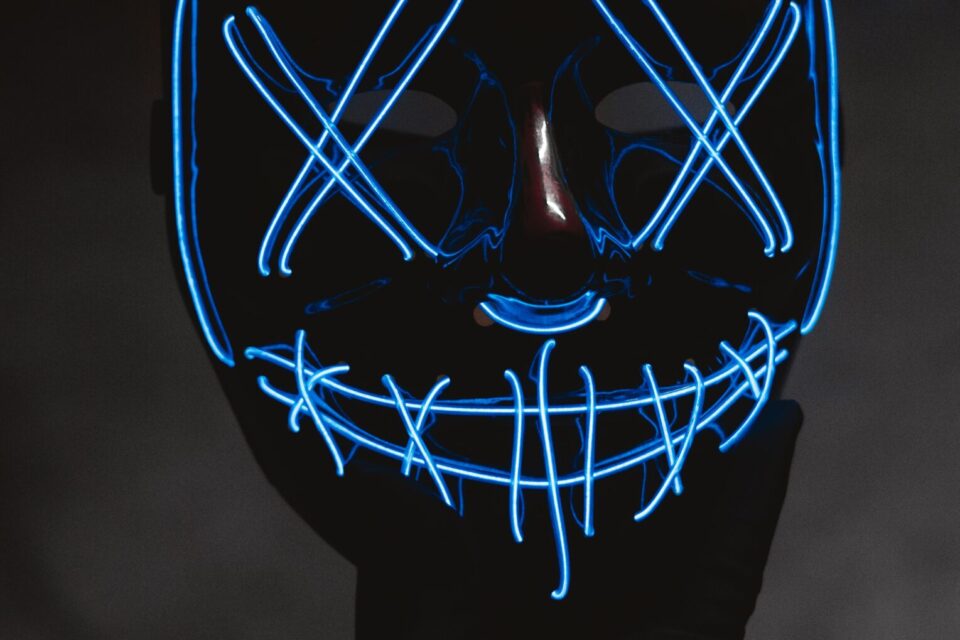There is something incredibly moving about the ending of Donnie Darko. It is like all the pieces have come together but in a different shape than what we expected. The film ends by returning to its beginning, albeit a version which did not happen before. In this reality, the plane engine kills Donnie, thus reversing everything we just watched. All of the film’s character development and narrative momentum is gone. It was all just a dream. A vivid and all too familiar dream.
This emphasis on dreams and waking up is just one of the ways the events in Donnie Darko parallel those in Alice in Wonderland. Another example is how both Frank the Rabbit and the White Rabbit are obsessed with time running out, and both lead their protagonist down a rabbit hole (or wormhole) into a bizarre version of reality.
These parallels suggest that Donnie uses Alice to illustrate complex issues in a familiar light. In other words, Donnie relies on the archetypes from Alice to familiarize the viewer with its mind-bending narrative. I think the film’s ending sequence is a good example of this, as both Alice and Donnie end with character’s waking up.
In Donnie, the characters wake up confused, as if they are trying to remember what they were just dreaming about. The scene is almost entirely silent, as the camera seamlessly passes through the different character’s bedrooms, and we watch them as they take in their surroundings. The beauty of the scene is that we don’t know what they are thinking, or what they know. It is unclear if they remember the events of the film, or if they have dismissed them as a dream. A similar dilemma occurs at the end of Lewis Carroll’s text, as it is left unclear what Alice believes after she returns from Wonderland. Although she describes her adventure as a “Wonderful dream”, there is some ambiguity around this claim. Can she reconcile what she experienced in Wonderland with reality? Keep in mind, aspects of Alice’s reality appeared in Wonderland, like tea parties, nursery rhymes, laws, etc. This would suggest that aspects of Wonderland would likewise appear in Alice’s reality. Perhaps she has become as mad as the characters she encountered.
Speaking of madness, what makes this scene in Darko memorable is its use of the song “Mad World”, which revisits several moments from Alice. For instance, the line “All around me are familiar faces” relates to the déjà vu felt by the characters in the film. It likewise relates to Alice’s experience in Wonderland, particularly with nursery rhymes. When Alice tries to repeat a nursery rhyme in Carroll’s text, it comes out wrong. The rhyme still sounds familiar, but its words are different. The same occurs in Donnie, as characters see “familiar faces”, but their perception of them has changed.
Likewise, the line “Daily races, going nowhere” also connects to a scene in Alice. Early in the text, Alice participates in a Caucus Race, where there are no rules, destination, or logic, and everyone wins. Something similar happens to the events in the film. Because Donnie’s death prevents everything in the movie, we can read these events as a type of Caucus Race, as they were all leading nowhere.
Perhaps the most significant reference to Alice comes from the song’s title, “Mad World”. The word ‘mad’ pops up multiple times in Carroll’s work, like the infamous Mad Hatter. Much of Alice’s journey revolves around her trying to decide if she is mad or not. She gets into multiple arguments about her sanity, and this generally involves riddles. Occasionally, Alice wonders if she is still Alice, or if she has become a different person. The characters in Donnie face a similar dilemma in this final scene. The characters have become two different people; the person who just woke up and the person they were before. This final sequence shows the characters trying to reconcile their déjà vu memories with the immediate reality. This leads to what I believe is the film’s most unsettling moment.
As the ambulance drives away from Donnie’s house, we see his family on the front lawn. They are all visibly upset, except his mother, Rose, who stands apart from the family and is more shocked than tearful. We then cut away to Gretchen, who no longer remembers Donnie. After a young boy tells her about Donnie’s death, she looks over to the grieving family and makes eye contact with Rose. The two exchange an uncertain wave, which signals that although these characters share a connection, neither can remember why.
Then comes the strangest part of the film. After Gretchen and Rose wave to one another, the young boy beside Gretchen makes eye contact with the camera and waves, just as the camera cuts to black. I have always found this moment uncomfortable because it feels like the boy is making some statement about our reality and understanding of the film. It is as though the boy recognizes that we are also experiencing déjà vu, just as he is. This makes the ending of the film all the more mysterious, as not every question has been answered, and the film’s reality remains uncertain. Reality and dreams thus continue to interweave in both Alice and Donnie’s mad worlds.

What an insane interpretation… yet I understand you completely
Thank you! I am so glad you enjoyed the insanity 🙂